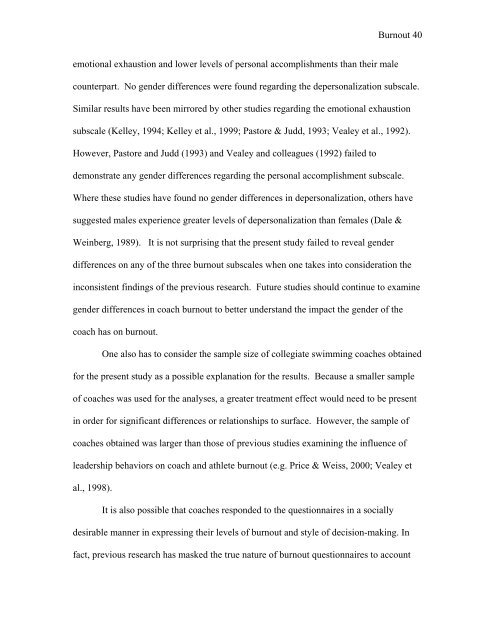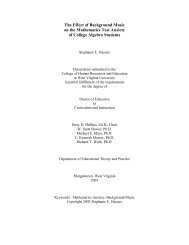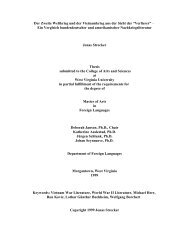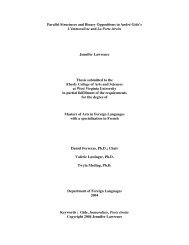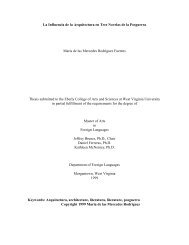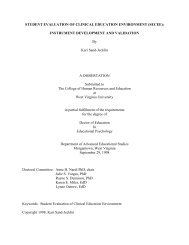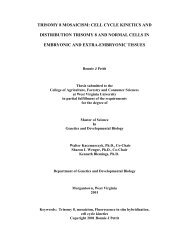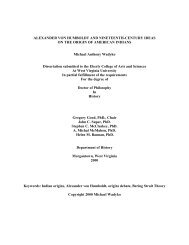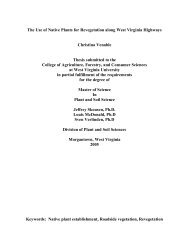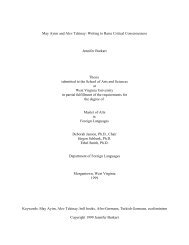Coach and Athlete Burnout - West Virginia University
Coach and Athlete Burnout - West Virginia University
Coach and Athlete Burnout - West Virginia University
You also want an ePaper? Increase the reach of your titles
YUMPU automatically turns print PDFs into web optimized ePapers that Google loves.
emotional exhaustion <strong>and</strong> lower levels of personal accomplishments than their male<br />
<strong>Burnout</strong> 40<br />
counterpart. No gender differences were found regarding the depersonalization subscale.<br />
Similar results have been mirrored by other studies regarding the emotional exhaustion<br />
subscale (Kelley, 1994; Kelley et al., 1999; Pastore & Judd, 1993; Vealey et al., 1992).<br />
However, Pastore <strong>and</strong> Judd (1993) <strong>and</strong> Vealey <strong>and</strong> colleagues (1992) failed to<br />
demonstrate any gender differences regarding the personal accomplishment subscale.<br />
Where these studies have found no gender differences in depersonalization, others have<br />
suggested males experience greater levels of depersonalization than females (Dale &<br />
Weinberg, 1989). It is not surprising that the present study failed to reveal gender<br />
differences on any of the three burnout subscales when one takes into consideration the<br />
inconsistent findings of the previous research. Future studies should continue to examine<br />
gender differences in coach burnout to better underst<strong>and</strong> the impact the gender of the<br />
coach has on burnout.<br />
One also has to consider the sample size of collegiate swimming coaches obtained<br />
for the present study as a possible explanation for the results. Because a smaller sample<br />
of coaches was used for the analyses, a greater treatment effect would need to be present<br />
in order for significant differences or relationships to surface. However, the sample of<br />
coaches obtained was larger than those of previous studies examining the influence of<br />
leadership behaviors on coach <strong>and</strong> athlete burnout (e.g. Price & Weiss, 2000; Vealey et<br />
al., 1998).<br />
It is also possible that coaches responded to the questionnaires in a socially<br />
desirable manner in expressing their levels of burnout <strong>and</strong> style of decision-making. In<br />
fact, previous research has masked the true nature of burnout questionnaires to account


